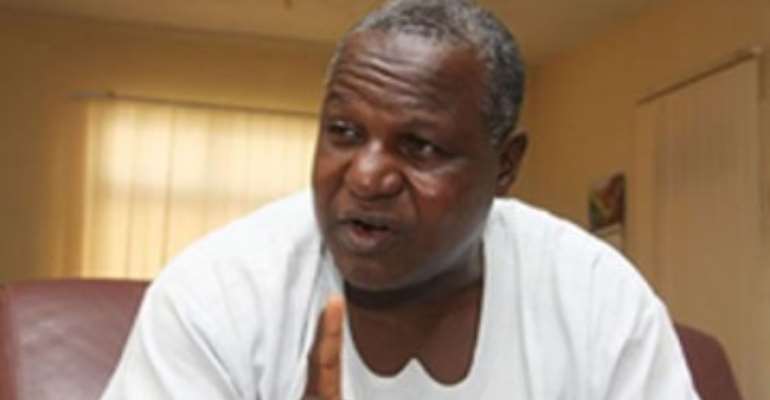NLC threatens strike over unpaid salaries

The national leadership of the Nigeria Labour Congress (NLC) has threatened to embark on a strike as 11 state governments have not paid the December salaries to their workers.
The organised labour called on its chapters in Benue, Plateau and Osun states to serve their respective governments an ultimatum within which to pay the workers' salary arrears of between three and eight months or risk a strike.
The President of the NLC, Mr. Abdulwaheed Omar, who made the comment in an 'End of Year Message,' called on the workers to vote against any politician who failed to pay their salaries in the 2015 elections.
He said that any governor who was not able to pay the salaries of workers in his state had no justification to receive his own salaries too.
Omar said that some employees of the Federal Government in the Ministry of Labour and Productivity were being owed between one to three months' salary areas.
He said, 'Collated reports from our state councils indicate that a number of state governments and some Federal MDAs have not paid their workers for December as the year comes to an end.
'Of the 30 states reporting as of the 30th of December, 11 subjected their workers to a Christmas/New Year celebration without the December salary.
'Three of these states, Benue, Plateau and Osun, owed their workers arrears of salaries ranging from three to eight months. Some Federal Government employees in the ministries of Education, Labour and Productivity, among others, are owed arrears of salaries ranging from one to three months.
'We condemn this insensitivity to the welfare of workers. Any state governor, who cannot pay workers their salaries, as at when due, has no moral justification for taking his own salary and allowances.
'We call on workers to massively reject these anti-worker politicians in the 2015 elections. Meanwhile, we direct our state NLC councils in the three states mentioned above to serve appropriate ultimatums on their government to pay the arrears of salaries or face disruption of services.'
Omar warned the Federal Government against imposition of general austerity measures on the citizenry, which he said could further aggravate the suffering of the ordinary worker.
He said that the most tenable way to manage the current budget under austerity was a drastic reduction in the cost of governance in the country.
He called for a cut in the Presidential fleet, the cost of running the State House, a reduction in the number of aides who add no value to governance and political office holders in the country.
Omar, who supported the decision of the Federal Government to tax the rich, advised against any move to sack workers.
He added, 'While we appreciate the difficulties brought by the collapse in oil prices, we caution against the imposition of unselective austerity measures. Already, workers continue to bear the brunt of the savage devaluation of the Naira with a possibility of collateral consequences.
'We also strongly advise against any consideration for rationalisation of workforce. We support the government initiative to tax the rich through luxury taxes. More importantly, we are convinced that the surest way to manage the budget under austerity is to reduce the cost of governance.
'Bloated prerequisites of political office holders must be cut. The prerequisites and comfort of politicians need to reflect the reality of the times. Mr. President and the State House must lead in this regard. The size of the Presidential fleet, the cost of running the State House and the retinue of political jobbers can all be reasonably cut without reducing the effectiveness of the Presidency.'
He also condemned what he described as the imposition of exploitative electricity tariff on the citizenry, saying such a move could culminate in an unpleasant situation as indicated by the protest against the move in some of the cities across the country such as Benin, Enugu, Lagos and Kano.
